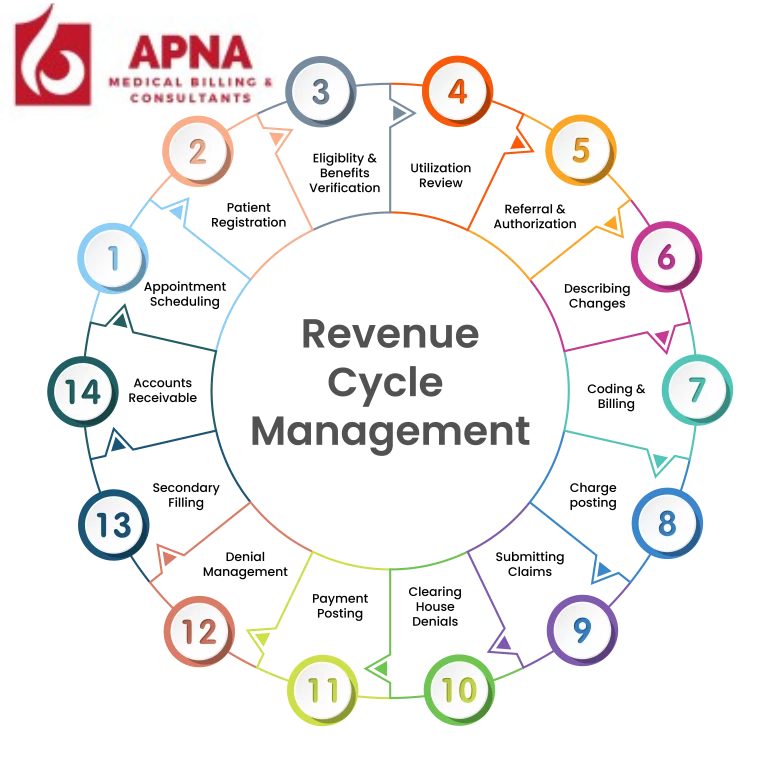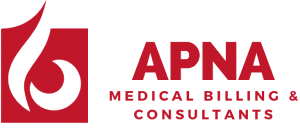
The Future of RCM Services: Trends & Best Practices for Healthcare Billing
Revenue Cycle Management (RCM) services are at the heart of the financial operations in healthcare. From patient registration to final reimbursement, RCM services ensure that every step in the billing process is accurate, efficient, and compliant.
However, as healthcare organizations work to address changing patient expectations, regulatory pressures, and advancements in technology, the field of RCM healthcare services is undergoing dramatic transformation. This blog explores emerging trends, critical best practices, and future predictions, giving healthcare providers and administrators the insights they need for sustainable billing success.
What is Revenue Cycle Management?
Revenue Cycle Management (RCM) is the backbone of healthcare financing. It encompasses the entire process of managing the financial transactions related to patient healthcare, starting from scheduling appointments and patient registration to coding, claims processing, and payment posting. Efficient RCM health services are fundamental for both patient satisfaction and the financial viability of healthcare institutions.
Key Components of RCM Healthcare Services
Patient Registration: Capturing accurate patient demographics and insurance information.
Medical Coding: Translating patient diagnosis and treatments into standardized codes for billing.
Claims Processing: Filing insurance claims efficiently to ensure timely reimbursements.
Payment Posting: Accurately logging payments received from insurers or patients.
Denials Management: Identifying, analyzing, and addressing claim denials to minimize revenue loss.
Challenges in Traditional RCM Processes
Manual errors and inefficiencies in coding and claims submissions.
Lack of real-time data, leading to missed revenue opportunities.
Managing billing complexities arising from telehealth and value-based care.
Emerging Trends in RCM Services
Automation & AI in Billing
Artificial intelligence (AI) is reshaping the RCM landscape. AI-driven claim processing automates repetitive tasks, reducing human errors and increasing efficiency. Predictive analytics, another AI capability, helps identify potential denials before submission. Tools like chatbots and virtual assistants are also streamlining patient billing by addressing common queries in real time.
Blockchain for Secure Transactions
Blockchain technology offers unparalleled security and transparency in RCM billing services. By creating tamper-proof records, it not only reduces fraud risk but also ensures compliance with healthcare regulations like HIPAA.
Cloud-Based RCM Solutions
Cloud-based RCM systems provide scalability and remote accessibility, making them invaluable for healthcare RCM services. These solutions allow multiple locations to access updated records simultaneously, fostering operational efficiency in large healthcare networks.
Telehealth & Its Impact on RCM
With telehealth adoption skyrocketing, healthcare administrators face new billing challenges. RCM healthcare services need to adapt to evolving reimbursement policies to ensure smooth claims processing for virtual consultations.
Value-Based Care
RCM services are evolving alongside the transition from fee-for-service to outcome-based models. By emphasizing patient outcomes rather than procedures, value-based care is altering how billing is structured and processed.
Interoperability & EHR Integration
The seamless exchange of data among Electronic Health Records (EHR) systems is critical for accurate and efficient RCM management services. Interoperability ensures smoother workflows across departments, improving revenue collection.
Compliance & Regulatory Changes
RCM health care service providers must stay up to date with healthcare regulations, including HIPAA, ICD-11 implementation, and CMS reimbursement guidelines. Non-compliance can lead to financial losses and legal challenges.
Best Practices for Efficient RCM Management Services
1. Patient-Centric Billing Approach
Simplify billing statements and offer transparent pricing upfront. Patients are more likely to pay promptly when they understand their bills.
2. Optimizing Claims Management
Accurate medical coding and thorough documentation can reduce claim denial rates. Invest in training your coding staff or consider using AI-assisted coding technologies.
3. Revenue Leakage Prevention
Use analytics to identify gaps in the payment process, such as unbilled charges or underpayments, to ensure maximum revenue recovery.
4. Effective Use of RPA (Robotic Process Automation)
RPA can handle repetitive and error-prone tasks like claims status checks and eligibility verification, freeing up staff to focus on higher-value tasks.
5. Real-Time Analytics & Reporting
Leverage real-time insights to make data-driven decisions. These analytics can help institutions identify inefficiencies, spot trends, and optimize their revenue streams.
6. Outsourcing vs. In-House RCM Management
Outsourcing behavioral health RCM services or other specialized fields can reduce your organization’s administrative burden. However, weigh this against the higher level of control and personalization you retain with in-house teams.
Future Predictions for RCM Services
AI-Driven Autonomous Billing
The future points toward fully autonomous billing systems, where AI handles everything from coding to claims submission without human intervention.
Hyper-Personalized Billing Experiences
With consumer expectations rising, RCM billing services will focus on personalized communication, payment plans, and patient education.
Decentralized Finance (DeFi) & Digital Payments
The adoption of blockchain and DeFi technologies will revolutionize payments in healthcare, making transactions faster, more secure, and cost-efficient.
Evolution of RCM Outsourcing
Global partnerships for RCM outsourcing will expand, making specialized expertise and cost efficiencies more accessible to healthcare providers.
Driving Financial Success Through RCM Innovation
The future of RCM services is heavily tied to advancing technology and adapting regulatory demands. To remain competitive, healthcare organizations must prioritize investments in automation, patient-centric processes, and data-driven decision-making tools.
By following best practices and staying ahead of emerging trends, any healthcare institution can transform its billing operations, maximize revenues, and provide better experiences for both patients and staff. The key is to consistently innovate and adapt to the evolving healthcare landscape.
Remember, a strong RCM process isn’t just a financial asset—it’s the foundation for delivering exceptional patient care.

